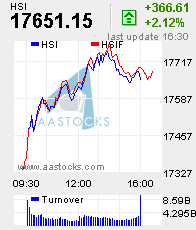 Zhou Xiao-chuan hopes that “surplus savings will flow to developing countries”
Zhou Xiao-chuan hopes that “surplus savings will flow to developing countries”
A speech was delivered by Zhou Xiao-chuan, the head of China's central bank, at the first Global Think Tank Summit in Beijing hosted by China Center for International Economic Exchanges. Zhou has expressed his “hope that surplus savings flow towards developing countries.”
Excerpts from the speech ...
“Analysis of balanced adjustment of the global economy.”
“There are several possible situations in which imbalances in the global economy can be re-adjusted. There will also be differences in the policy direction for differing situations.”
“Situation 1 is being discussed quite frequently. That is, U.S. household savings and the total savings rate increases, Chinese personal consumption also increases, and the global imbalance is largely corrected. This is the most ideal of circumstances. ”
“Situation 2, the U.S. household savings rate increases, and the United States does not import so many products from China. China will suffer from even more pronounced overcapacity, the equipment usage rate will fall, and employment levels will fall, which will cause China to enter a period of low-GDP growth. We should strive to avoid this situation occurring.”
“Situation 3, the U.S. household savings rate increases, China's personal consumption rate increases, yet the increase is inadequate. At the same time, investment in urbanization increases, and the combined strength enables surplus savings to fall. ... However, it will require a corresponding reform of urbanization finance and investment methods- such as the municipal government bonds which have been discussed for many years.”
“Situation 4, the U.S. household savings rate increases, and imported Chinese products are no longer required in such large quantities. At the same time, China, by means of investment abroad, shifts part of its production capacity towards developing countries.”
“Situation 5, the U.S. household savings rate increases, yet not smoothly and persistently. Adjustment in China proceeds relatively smoothly, with a partial shift in production capacity to other countries, which achieves a relative balance in overseas trade. Overcapacity will be no longer directed at the United States, but divided between other countries. ”
“Situation 6 is the one which we would least like to see, where adjustments are unsuccessful, and current international economic imbalances persist, while trade protectionism becomes more and more severe.”
“... China increases its strength of reform, expands consumption, and urbanization achieves great progress. However, considering that the high saving rate in China, it is still possible to have overcapacity. However, it can be directed towards other developing countries. Nevertheless, this will require the support of the international financial as well as the monetary system to improve the global production rate and the income distribution.”
http://wongtc.blogspot.com/2009/07/blog-post_04.html












